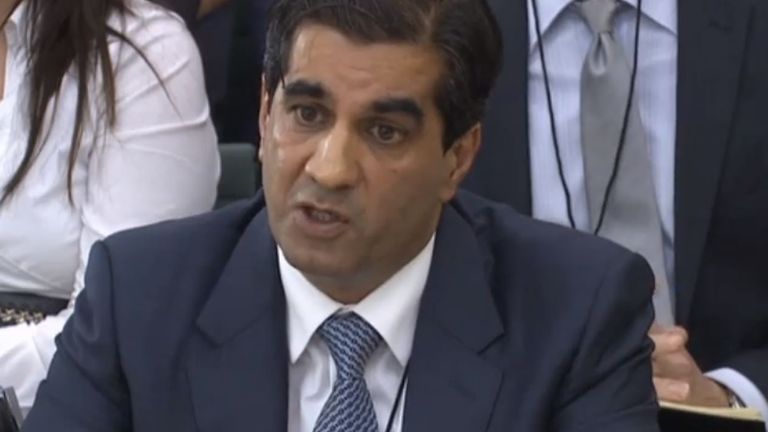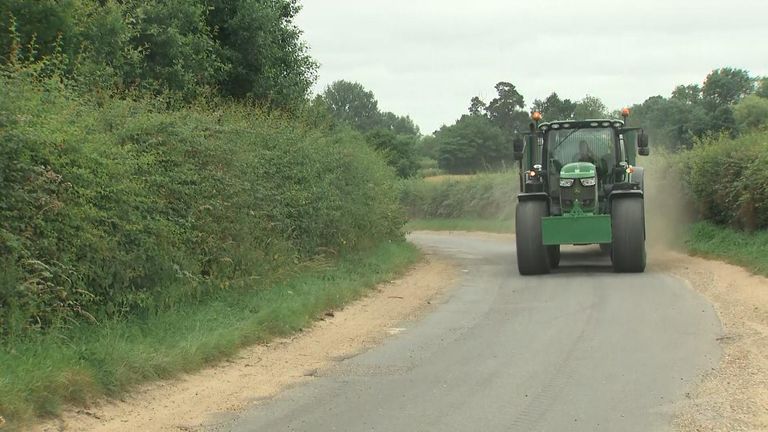Food industry’s ‘Chicken King’ warns of looming Xmas turkey crisis as ‘pingdemic’ and Brexit hit staffing
The food industry tycoon known as the “Chicken King” has told Sky News the so-called “pingdemic” staffing crisis is just a small part of unprecedented pressures on supplies, with food shortages already being felt.
Ranjit Singh Boparan, whose interests include the 2 Sisters Food Group (2SFG) and a string of casual dining brands, used an interview with Ian King Live to warn that even the Christmas turkey was under threat because of a wider shortage of skilled workers, such as butchers, in the wake of Brexit.
He explained that government plans to alleviate disruption caused by the pandemic did not go far enough as a limited number of supermarket shelves and freezer sections became bare.
It was announced last Thursday that daily contact testing was to be rolled out to workers in the food supply sector under a wider easing of rules that would allow staff deemed “critical” to be exempt from self-isolation if “pinged” as a close contact by the NHS COVID-19 app.
Mr Boparan told the programme that a “couple of hundred” people at 2SFG were currently in quarantine – describing the situation as “not too bad” but he said there remained a lack of clarity on exemptions from ministers.
He complained that a string of other challenges had created a “perfect storm” for the sector, warning last week of the prospect of the worst food shortages since rationing at the end of the Second World War.
Those challenges, he said, included ingredient, energy and wage inflation – all exacerbated by post-Brexit staff shortages including a lack of trained hauliers.
The tycoon, who employs 15,000 staff at 2SFG producing staples such as chicken, pies and biscuits, said his business had been hurt by a lot of people returning to their countries of origin within the EU and a lack of skilled UK workers to replace them.
“If you look at the furlough scheme, you’ve got 2.3 million people on the furlough scheme yet we’re short of people within the food sector,” he said.
“A shortage of drivers is just one element of the supply chain, a very important element which is being made very public, but if you just times up by 100, that’s the labour shortage that we’re facing in the food industry, not just the poultry industry – the food industry today – and is something that we need to address.
“Just look at the supply chain, the supply chain starts from the farm.
“If [we are] short of labour on the farms, we’re not going to get the product. If we manage to get it from the farms to the factories and we are short [of] labour there, we’re not going to get it to the depots.
“If we do manage to get to the depots and they can’t get the staff there, they’re not going to get on to lorries. If we are short of drivers, and they can’t get to the supermarket shelves – that’s another problem.
“If you haven’t got the people in the supermarkets to put the product on the shelves… you just think about all the supply chain – you just need one element not to work and at the moment there’s several elements that are not working.”
He said a return to basic food products was also possible because of difficulties sourcing ingredients in time for convenience products such as chicken Kievs.
On the prospect of disruption to turkey supplies, he added: “How do you expect a thousand workers to come in to provide turkeys at Christmas. It’s not going to happen.”

